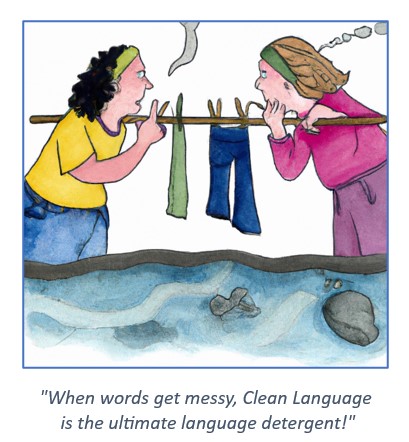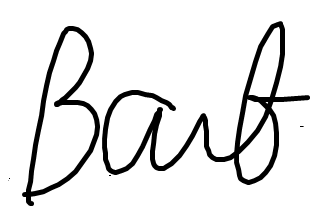|
Originally sent on October 31, 2023

Hi Barb,
Expert facilitator Sun Kagami (Sunni Brown) asserts that the most important job skill in the next five year is listening.
Would you agree?
I would! And I'd add that listening is an important skill for everyone, not just paid workers. It's vital for volunteers, family members, neighbors, and just about any group I can think of.
Ms. Kagami believes that being present and listening is "one of the most transformative, restorative, mobilizing and generative things you can do."
Is your listening that powerful?
Would you like it to be even a little more transformative, restorative, mobilizing and generative?
If so, consider learning Clean Language, a set of simple questions and a way of asking them that invites the speaker to go deeper and to share what matters to them.
And Clean Language can help you, the listener, to listen with curiosity, humility and respect, relieved of the need to respond, correct, fix, lead or otherwise interrupt or disrupt what the speaker is saying.
Imagine how it might feel, both to listen and to be listened to that deeply! How would that change your leadership or your life?
To learn more about Clean Language, check out the resources below!
Warmly,

Barb Bickford
* Source: The New Rules for Work project interviews starting at the 12:20 time stamp.
If an event has already occurred, the links in this email may not work. Questions? Contact Barb.
The Benefits of Clean Language for Better Communication
Are you concerned about how people (including yourself) communicate in your organization? Check out this two page introduction to Clean Language -- what it is and isn't, and how it can enhance your leadership and life.
Deep Listening – Infusing Empathy at Home, at Work and in the Church -- Nov 13 - Dec 11
During the holidays, arguments can strain relationships. But we can change by learning to listen actively with respect, humility and curiosity. In five one-hour sessions you will learn simple questions in short bursts of instruction and considerable practice in listening, based on Clean Language. Course sessions will be on Monday evenings (6:30 to 7:30 PM central time) from November 13 - December 11. $250 (15% discount for members of the UCC in Minnesota and Wisconsin) Learn more and register.
Clean Language for Facilitators -- Nov 7, Nov 21 and Dec 11
Clean Language offers something remarkable, even for experienced group facilitators. I'll be assisting with this course offered by Judy Rees and Steve McCann on Nov 7, Nov 21 and Dec 11, from 7 AM to 11 AM, US central time. First, watch this video and look under the video for a code to take the course at a substantial discount -- then register for the course.
Beyond Bob - Practicing Alternatives to Robert's Rules -- Monday November 6, noon central time
In this online session, we'll explore the pros and cons of Robert's Rules and identify ways to begin shifting your meetings towards more collaboration and inclusiveness. Come prepared to:
-- unpack the essential elements of facilitating open and inclusive decision-making at the committee and board level
-- practice alternatives you can use even if your bylaws require using Robert's Rules
-- explore governance frameworks that invite every member to fully participate in your organization's vision, values, purpose, and practice
Sign up for this workshop and (optional) take a short survey, which will help us shape the course to your needs, as well refine our alternatives to Robert's Rules. If you aren't registering, you are also welcome to take the survey, and you can be anonymous.
My current workshops and courses
Recent Blog posts
-- Listening skills for when you don't have time
-- Beyond Bob: Why we should consider alternatives to Robert's Rules
-- Listening skills are rooted in curiosity
Stay focused to do more and listen more
To stay focused and do your best work, avoid isolation and multitasking. Isolation keeps you from valuable ideas and empathy, and can lead to depression. Multitasking keeps you in reactionary mode, which cuts off creative thinking.
To stay focused and hear more, try voice mirroring. To practice voice mirroring, simply focus on and repeat what the other person is saying, but only in your mind, not out loud. If your mind wanders to trying to fix or suggest something, gently bring it back to their words. It seems obvious, but you will hear more if you are not thinking about what you could say next.
And, if you choose to explore Clean Language, voice mirroring can help you identify what you may want to ask about with your next Clean Question.
Want more tips? Access Ten Tips to Foster Online Engagement.
If you were forwarded this email and want to subscribe click here
|